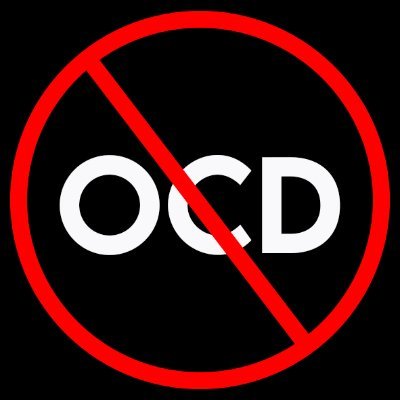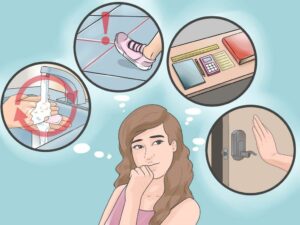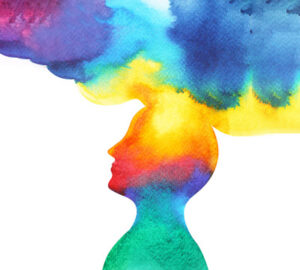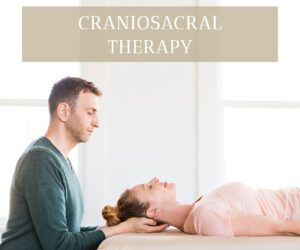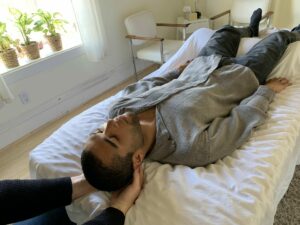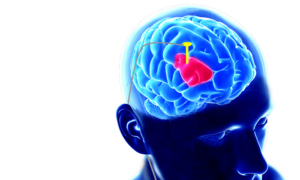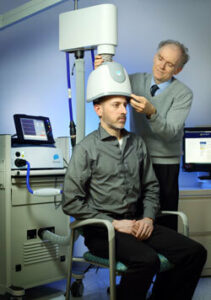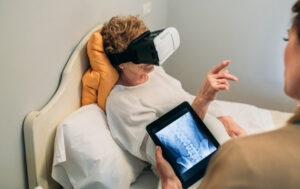If you are one of the millions of people who suffer from OCD, you know how difficult it can be to get help. This comprehensive guide will provide information on treatment options and strategies for managing OCD.
Contents
- 1 What Is OCD?
- 2 What Are The Treatment Options For OCD?
- 2.1 Cognitive Behavioral Therapy (CBT)
- 2.2 Exposure And Response Prevention Therapy (ERP)
- 2.3 Acceptance And Commitment Therapy (ACT)
- 2.4 Dialectical Behavioral Therapy (DBT)
- 2.5 Hypnosis
- 2.6 Family Therapy
- 2.7 Group Therapy
- 2.8 Psychodynamic Psychotherapy
- 2.9 Art Therapy
- 2.10 Animal Therapy
- 2.11 Massage Therapy
- 2.12 Sauna Therapy
- 2.13 Bright Light Therapy
- 2.14 Craniosacral Therapy
- 2.15 Floatation Therapy
- 2.16 Polarity Therapy
- 2.17 Deep Brain Stimulation (DBS)
- 2.18 Transcranial Magnetic Stimulation (TMS)
- 2.19 Virtual Reality Therapy (VRT)
- 2.20 Homeopathy
- 2.21 Acupuncture
- 2.22 Aromatherapy
- 2.23 Dietary Supplements
- 2.24 Relaxation Techniques
- 2.25 Psychiatric Medication
- 2.26
- 2.27 Self-help
- 2.28 Support Groups
- 3 Conclusion
What Is OCD? 
Obsessive-compulsive disorder (OCD) is an anxiety disorder in which people have persistent and recurrent thoughts, emotions, images, and sensations (obsessions) that drive them to engage in particular behaviors or mental actions (compulsions).
Handwashing, counting, and checking are examples of common compulsions. People with OCD could have any combination of obsessions and compulsions.
What Are The Causes?
Various risk factors cause OCD. Some of the risk elements are:
- Biological: Brain changes or differences may contribute to OCD.
- Psychological: Anxiety and stress can trigger OCD.
- Environmental: A traumatic event may lead to OCD.
- Family history: If someone in your family has OCD, you may be at risk.
What Are The Consequences?
There are various harsh consequences a person has to deal with if he/she is suffering from OCD. Some of such adverse results are:
- social isolation
- emotional stress
- financial problems
- depression and anxiety
- difficulty in concentrating on work or studies
- sleep problems
- physical problems
Thus, it is very important to get treatment for OCD as soon as possible because we can see how this mental disorder can negatively affect different aspects of a person’s life.
What Are The Treatment Options For OCD?
For managing and overcoming the problem of OCD, there are various treatment options available and many of them are as follows:
Cognitive Behavioral Therapy (CBT) 
CBT is an effective treatment for OCD. It helps people to understand their thoughts and feelings, and how these can affect their behavior. CBT also teaches people how to change their thinking and behavior, so that they can better manage their OCD.
CBT treatment usually involves working with a therapist to identify thoughts and behaviors that are contributing to OCD symptoms. After identification, the therapist and person with OCD will work together to find new, more helpful ways of thinking and behaving. This may involve gradually exposing the person to situations that trigger OCD symptoms so that they can learn to manage their anxiety without engaging in compulsions.
CBT is an effective treatment for OCD and can help people to overcome their symptoms and live a more normal life.
Exposure And Response Prevention Therapy (ERP)
ERP is a treatment for OCD that involves gradually exposing the person to their fears and anxiety-provoking situations, without letting them engage in their usual compulsions or avoidance behaviors.
ERP treatment usually starts with the therapist helping the person to identify their specific fears and anxiety triggers. Once these are identified, the therapist will work with the person to gradually expose them to their fear triggers in a controlled and safe environment. The therapist will also help the person to resist their urges to engage in compulsions or avoid behaviors.
Over time, as the person becomes more comfortable with their fear triggers and learns to cope with the anxiety without resorting to compulsions or avoidance, the OCD symptoms will start to lessen and eventually go away.
Acceptance And Commitment Therapy (ACT)
ACT, or Acceptance and Commitment Therapy, is a treatment that helps people manage and overcome OCD. ACT does this by teaching people to accept their thoughts and feelings, and to commit to taking action in their lives. It is based on the idea that our thoughts and feelings are not always accurate or helpful, and that we can still choose to act in ways that are consistent with our values even when we have these thoughts and feelings.
For example, someone with OCD might have the thought that they need to wash their hands 100 times a day to be safe. This is not an accurate or helpful thought, but it is a thought that the person with OCD has. ACT would teach this person to accept that they have this thought, and to commit to taking action in their life despite it.
This might mean choosing to wash their hands 20 times a day instead of 100, or it might mean choosing not to wash their hands at all. The important thing is that the person with OCD is choosing how to live their life, based on their values, rather than letting their thoughts and feelings control their actions.
Dialectical Behavioral Therapy (DBT)
DBT is a treatment that helps patients manage and overcome OCD by teaching them skills to deal with difficult situations. It has four main components: mindfulness, distress tolerance, interpersonal effectiveness, and emotion regulation.
- Mindfulness is the ability to be aware of and accept the present moment without judgment. This means being aware of your thoughts, feelings, and sensations without judging them as good or bad. Mindfulness helps you to become more aware of your triggers and learn how to control your reactions to them.
- Distress tolerance is the ability to tolerate difficult situations and emotions without making them worse. This means learning how to cope with stressful situations healthily. For example, instead of avoidance, you might try deep breathing or relaxation techniques.
- Interpersonal effectiveness is the ability to communicate and assert yourself in relationships. This means being able to communicate your needs in a way that is respectful and effective. It also means being able to set boundaries and say no when necessary.
- Emotion regulation is the ability to manage your emotions healthily. This means being able to identify and productively express your emotions. It also means learning how to cope with difficult emotions healthily.
Hypnosis
It is believed that hypnosis helps to re-train the brain to think differently about certain situations and objects that trigger OCD symptoms. For example, if someone has a fear of germs, they may be taught through hypnosis to see germs more realistically – as something that is not necessarily harmful.
If you are considering hypnosis treatment for OCD, it is important to find a qualified therapist who has experience in treating OCD. treatment of OCD can be very effective when it is tailored to the individual’s needs.
Family Therapy 
Family therapy can help in the treatment of OCD by providing support to the individual and their family members. It can also help to educate family members about the disorder and how to support their loved ones in treatment.
Family therapy can be an important part of treatment, particularly for children and adolescents with OCD. It can help to reduce stress within the family, improve communication and provide support for all members of the family.
For example, family therapy can help to:
- Teach family members about OCD and its treatment
- Help family members understand how they can support their loved ones in treatment
- Reduce stress within the family
- Improve communication within the family
- Provide support for all members of the family.
Group Therapy
Group therapy is a form of treatment that involves bringing together people with similar issues to share their experiences and learn from each other. It can be an effective treatment for OCD because it provides support and allows people to share their experiences in a safe and confidential environment. Group therapy can also help people learn coping and problem-solving strategies from each other.
Psychodynamic Psychotherapy
Psychodynamic psychotherapy is a treatment approach that helps people understand the role of their unconscious thoughts and feelings in their lives. It can help people with OCD to manage and overcome their symptoms by helping them to understand the links between their thoughts, feelings, and behaviors.
For example, a person with OCD might have an unconscious thought that they are dirty or contaminated. This thought might lead to feelings of anxiety and fear, which in turn might lead to behaviors such as washing their hands over and over again. By understanding the links between these thoughts, feelings, and behaviors, a person with OCD can learn to manage their symptoms and live a fuller life.
Art Therapy 
Art therapy is a type of treatment that helps manage and overcome OCD. It makes people express themselves, work through difficult emotions, and help people learn new coping skills. Art therapy can be used in individual or group settings, and it can be used with people of all ages.
There are many different ways that art therapy can be used to help people with OCD. One way is to use art to help people express their thoughts and feelings. For example, a person with OCD might make a collage that represents their fears, or they might paint a picture that represents what it feels like to be stuck in OCD.
Animal Therapy
There are several ways in which animals can help people with OCD manage their condition and overcome their symptoms. One way is by providing physical assistance with tasks that the individual may be struggling to complete on their own, such as opening doors or picking up dropped items. One such example is service dogs. They can provide emotional support, helping to reduce anxiety and provide a sense of calm in situations that may trigger the individual’s OCD symptoms.
Overall, animal therapy can be a valuable asset in the treatment of OCD, providing both practical and emotional support that can help people to better manage their condition and live fulfilling lives.
Massage Therapy 
Massage therapy is an effective treatment for OCD because it helps to break the cycle of repetitive thoughts and behaviors. It can help to relax the body and mind, which reduces the symptoms of OCD. Massage also helps to increase circulation and improve sleep, both of which are important for managing OCD.
Several different types of massage can be effective for treating OCD. A Swedish massage is a gentle form of massage that uses long strokes to relax the body. Deep tissue massage is a more intense form of massage that targets the deeper layers of muscle tissue. Trigger point massage is a type of massage that focuses on specific areas of the body that have an association with OCD.
Sauna Therapy 
Sauna means “sweat bath” in Finnish, and the treatment helps ease a variety of mental and physical health conditions.
The therapy’s treatment involves spending time in a sauna, typically 20-30 minutes per session. The heat of the sauna helps to relax the muscles and ease tension in the body. It also helps to improve circulation and increase blood flow to the brain. This can help to improve focus and concentration.
Sauna therapy helps to manage and overcome OCD by :
- Reducing anxiety: Sauna therapy can help to reduce anxiety by inducing a state of relaxation. This helps to ease the tension and worry that mostly occurs with OCD.
- Improving sleep quality: Sauna therapy can also help to improve sleep quality by inducing a state of deep relaxation. This helps to reduce the racing thoughts and worry that often keep people with OCD awake at night.
- Improving concentration and focus: Sauna therapy can also help to improve concentration and focus by reducing distractions and improving blood circulation to the brain.
Bright Light Therapy 
Bright light therapy helps reduce the severity of OCD symptoms. One theory is that bright light therapy helps to reset the body’s natural circadian rhythms, which can be off balance in people with OCD. Bright light therapy has also been found to help reduce levels of the stress hormone cortisol.
Studies have shown that people with OCD who received bright light therapy have a decrease in the number of OCD-related thoughts and compulsions, and an increase in the ability to resist performing compulsions.
Craniosacral Therapy 
Craniosacral therapy is a type of treatment that uses gentle touch to help relieve stress and tension in the head and neck area. This therapy can help to relieve some of the symptoms associated with OCD, such as headaches, neck pain, and fatigue.
The treatment involves the therapist lightly touching the client’s head and neck in a specific sequence. Craniosacral therapy is a very gentle treatment and is usually well tolerated by most people.
Floatation Therapy 
Floatation therapy involves lying in a tank or pod that is full of water and Epsom salt. The high concentration of salt means that you float effortlessly on the surface of the water. The tank is usually dark and quiet, which can help to create a relaxing environment.
Floatation therapy is an effective treatment for OCD, with many people seeing a significant reduction in their symptoms. One of the most important benefits is that it can help to reduce stress and anxiety levels. This is because when you are floating in the tank, you feel utmost relaxation and your mind is free from any outside distractions. This allows you to focus on your thoughts and feelings, which can help to identify any negative patterns that may be causing your OCD.
Floatation therapy also provides a safe and controlled environment. This can be helpful as it means that you can expose yourself to your triggers in a safe way, without the worry of them causing you any harm. This can help you gradually overcome your fear of your triggers and start to control your OCD.
Polarity Therapy 
Polarity therapy is a treatment approach that helps people manage and overcome OCD by using the principles of positive and negative charges to restore balance in the body. This therapy believes that all living things are made up of energy that flows in a cyclical pattern. When this is a disturbance in flow, it can lead to physical and mental imbalances. Polarity therapy uses touch, movement, and energy balancing techniques to help re-establish the flow of energy in the body and restore balance.
Polarity therapy is effective in managing OCD symptoms. There are various theories for this. One theory suggests that by restoring balance in the body, polarity therapy helps to reduce anxiety and stress. This, in turn, helps to reduce OCD symptoms. Another theory suggests that polarity therapy helps to re-wire the brain and break the cycle of OCD.
Deep Brain Stimulation (DBS) 
DBS is a relatively new treatment option for OCD. It is a treatment option for people with OCD who have not responded to other treatment options, such as medication and cognitive-behavioral therapy (CBT).
DBS involves surgically placing a device called a neurostimulator in the brain. The neurostimulator sends electrical impulses to specific areas of the brain that are thought to be involved in OCD. This method is usually only recommended for people with severe OCD who have not responded to other treatment options.
Transcranial Magnetic Stimulation (TMS) 
TMS is a treatment that uses magnetic fields to stimulate nerve cells in the brain to improve symptoms of OCD. It is typically used when other treatment options, such as medication and psychotherapy, have not been effective.
TMS treatment is typically given five times per week for four to six weeks. Each treatment session lasts for 30-60 minutes. During treatment, a coil is placed against the head near the area of the brain that is thought to be involved in OCD. The coil produces short magnetic pulses that stimulate the nerve cells in that area of the brain.
TMS is a non-invasive treatment that does not require anesthesia or sedation. Some people may experience mild side effects, such as headaches or scalp discomfort, during treatment. However, these side effects are usually temporary and go away on their own.
Virtual Reality Therapy (VRT) 
Virtual reality therapy is an immersive treatment that uses computer-generated simulations to help people confront their fears. The therapist can create virtual environments that are similar to the real-world situations that trigger a person’s OCD. This allows the therapist to gradually expose the patient to their fears in a controlled and safe setting.
For example, a person with a fear of contamination might be slowly exposed to virtual environments that simulate contact with contaminated surfaces. The therapist can then help the patient to challenge their thoughts and beliefs about contamination. Virtual reality therapy is an effective treatment for OCD, with patients showing a reduction in OCD symptoms after treatment.
Homeopathy 
Homeopathy is a holistic system of medicine that aims to treat the whole person, not just the symptoms of their disease. This treatment believes that the body can heal itself and that homeopathic remedies can trigger this process.
Several different homeopathic remedies can be used to treat OCD, and the most appropriate remedy will be selected based on the individual’s symptoms and constitution. For example, someone who is feeling very anxious and has a fear of dirt and germs may be prescribed the remedy Arsenicum album.
Homeopathic treatment is often used in conjunction with other forms of treatment, such as cognitive-behavioral therapy (CBT), to provide the best possible outcome for the individual.
Acupuncture 
Acupuncture can help to balance the body’s energy and ease anxiety. It is an ancient form of Chinese medicine that is useful to treat a variety of conditions.
It improves OCD by normalizing the levels of serotonin in the brain. Serotonin is a neurotransmitter that plays a key role in mood and anxiety. Acupuncture treatment for OCD involves the placement of thin needles at specific points on the body. These points are located along energy pathways, known as meridians.
The needles are inserted to a depth of a few millimeters and are left in place for 20-30 minutes. Make sure to consult with a qualified practitioner if you think acupuncture fits you. They will be able to assess your condition and determine if acupuncture is right for you.
Aromatherapy 
Aromatherapy treatment for OCD can be very helpful in managing and overcoming the condition. It can help to boost mood, energy levels, and concentration. The sweet odor of some essential oils can also help to increase feelings of well-being and happiness.
When used in a massage or a diffuser, these oils can help to soothe and calm the mind, body, and emotions. This can be extremely helpful for those who are struggling with OCD, as it can help to break the cycle of intrusive thoughts and compulsions. This is because certain essential oils have calming and relaxing properties.
Dietary Supplements 
Several dietary supplements can help manage and overcome OCD. For example, omega-three fatty acids are effective in treating OCD. Omega-three fatty acids are found in fish oil supplements and are known to be effective in treating several mental disorders, including OCD.
Another example is probiotics, which can help to restore the balance of good and bad bacteria in the gut. Probiotics are found in yogurt and other fermented foods and help to restore the balance of good and bad bacteria in the gut.
Finally, magnesium supplements are also effective in treating OCD. Dietary supplements will help you get your OCD under control. Magnesium supplements are found in a variety of forms, including capsules, tablets, and powder.
If you are considering using any of these supplements to treat your OCD, it is important to speak to a qualified healthcare professional first. They will be able to advise you on the best course of treatment for your individual needs.
Relaxation Techniques 
Relaxation techniques help to manage and overcome OCD in several ways. First, relaxation techniques can help to reduce the overall level of anxiety that a person is feeling.
Second, relaxation techniques can help to increase a person’s sense of control over their OCD. Finally, relaxation techniques can help to improve a person’s quality of life. OCD can be very disruptive and can make it difficult to participate in activities that you enjoy.
Many different relaxation techniques can help manage and overcome OCD. Some of the most common include:
- Deep breathing: This is a simple but effective relaxation technique. It can be done anywhere, at any time.
- Progressive muscle relaxation: This technique involves tensing and relaxing different muscle groups in the body, one at a time.
- Visualization: This involves picturing peaceful, calming scenes in your mind.
- Yoga: This ancient practice can help to calm the mind and body.
- Mindfulness: This involves being present in the moment, and observing your thoughts and feelings without judgment.
Psychiatric Medication
Psychiatric medication is one of the most effective treatment methods for OCD. It helps to manage and reduce the symptoms of OCD by correcting the chemical imbalance in the brain. These medications help to reduce the obsessions and compulsions associated with OCD.
Antidepressants are the most commonly prescribed type of medication for OCD. Selective serotonin reuptake inhibitors (SSRIs) are the most commonly prescribed type of antidepressant for OCD. SSRIs work by increasing the level of serotonin in the brain. Serotonin is a neurotransmitter that plays a role in mood and anxiety.
Examples of SSRIs include fluoxetine (Prozac), paroxetine (Paxil), and sertraline (Zoloft).
Self-help 
There are many ways that people with OCD can help themselves manage and overcome their disorder. Some people find that therapy, medication, or a combination of the two helps them the most. Others find that they can control their OCD through self-help strategies or habits such as:
- Exercise: Exercise can help to release endorphins, which have mood-boosting effects. It can also help to reduce stress and anxiety.
- Sticking to a routine: Having a set daily routine can help to reduce anxiety and OCD symptoms.
- Avoiding triggers: Avoiding things that trigger OCD thoughts or behaviors can help to reduce symptoms.
- Challenging negative thoughts: Challenging and refuting negative thoughts can help to reduce OCD symptoms.
- Spending time in the fresh air: Getting out in nature can help to reduce stress and anxiety.
- Spending time with loved ones: Spending time with supportive family and friends can help to reduce stress and anxiety.
- Indulging in hobbies: Pursuing hobbies can help to take your mind off of OCD thoughts and behaviors.
These are just a few examples of self-help strategies that people with OCD can use to manage their symptoms.
Support Groups 
There are many ways to manage and overcome OCD, but one of the most effective is through support groups. These groups provide a space for people with OCD to share their experiences and learn from each other. They can also offer practical advice and support for dealing with the condition.
There are several different types of OCD support groups, so it is important to find one that suits your needs. Some groups focus on specific topics, such as hoarding or contamination, while others are more general. There are also groups for family members and friends of people with OCD.
Conclusion
Treat your OCD with the aid of professionals and family and friends. It is also important to take into account the severity of the OCD to properly treat it.
Seek the right treatment as per your requirement, identify what will suit you the best, and get on with the journey of treatment to get back your lost peace.
Professional Guidance is the first step to moving toward your healing journey. You can try reaching Therapy Mantra to seek expert help in the comfort of your own home. Our therapists will help you get a solution to manage and overcome your problem. You can book your online therapy and talk directly to your assigned mentor. You may also download our free OCD treatment app on Android or iOS.
